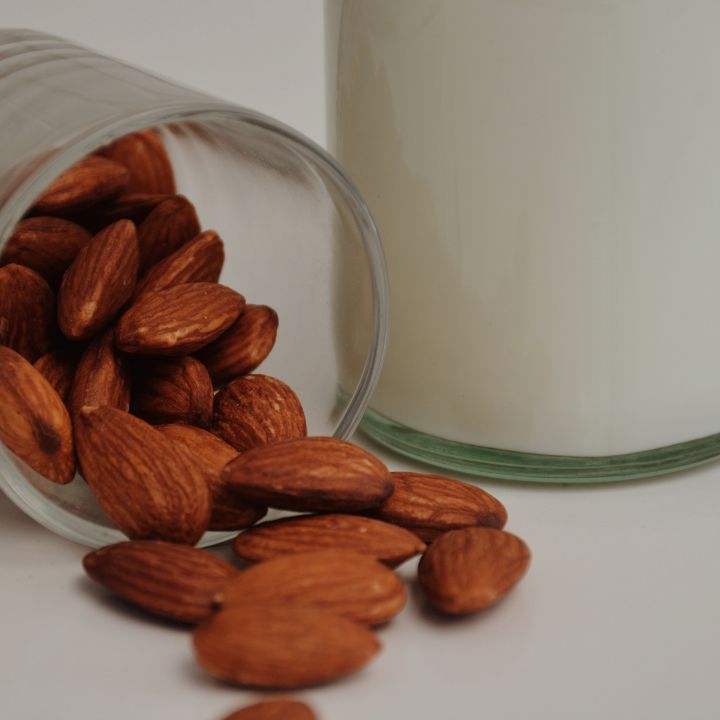Almond milk has become a popular milk alternative in recent years, both for its unique flavor and its numerous health benefits. Made from ground almonds and water, it is a vegan, lactose-free and low-calorie beverage that is rich in nutrients such as vitamins, minerals, and antioxidants. In addition to being a great alternative to cow’s milk, almond milk can also be used in baking.



Health Benefits
Calorie Content
One of the main health benefits of almond milk is its low calorie content. Almond milk is naturally lower in calories than cow’s milk, which makes it a great option for people who are watching their weight. A cup of unsweetened almond milk typically contains only 30-50 calories, whereas the same amount of cow’s milk contains around 120 calories. This makes almond milk a great option for people who want to cut calories without sacrificing taste or nutritional value.
Vitamins & Minerals
Almond milk is also rich in vitamins and minerals. It is a good source of vitamin E, which is an antioxidant that can help protect the body against free radical damage. Vitamin E is also important for maintaining healthy skin and hair. In addition, almond milk contains calcium, which is important for strong bones and teeth, and vitamin D, which is important for calcium absorption. Almond milk is also fortified with other important nutrients, such as vitamin A, vitamin B12, and zinc.
Lactose-free
Another health benefit of almond milk is that it is lactose-free, making it a great option for people who are lactose intolerant. Lactose intolerance is a common condition in which the body is unable to digest lactose, the sugar found in cow’s milk. This can cause symptoms such as bloating, gas, and diarrhea. Almond milk, on the other hand, is lactose-free and does not cause these symptoms.
Nut Allergy Friendly
Almond milk is also a great option for people with nut allergies, as it is a nut-free alternative to cow’s milk. However, it is important to note that some people with nut allergies may also be allergic to almonds, so it is important to check with a healthcare professional before consuming almond milk.
Almond Milk in Baking
Almond milk is also a great option for baking. It has a slightly sweet, nutty flavor that can add a unique taste to baked goods. Almond milk can be used in a variety of recipes, such as cakes, muffins, and cookies, as well as custards and puddings. When using almond milk in baking, it is important to consider its unique properties. Almond milk is thinner than cow’s milk, so it may require adjustments to the recipe. In addition, almond milk may have a slightly different flavor than cow’s milk, so it is important to choose recipes that are compatible with its taste.
Vegan & Dairy-Free
One of the advantages of using almond milk in baking is that it is a great way to create vegan and dairy-free versions of popular recipes. Many people are choosing to follow a vegan or dairy-free diet for health or ethical reasons. Almond milk is a great alternative to cow’s milk in these cases, as it can be used to make a variety of recipes without compromising taste or texture.
Adds Nutrition
Another advantage of using almond milk in baking is that it is a great way to add nutrition to baked goods. Almond milk is rich in nutrients such as vitamins and minerals, which can help to boost the nutritional value of baked goods. By substituting almond milk for cow’s milk in baking, you can add these important nutrients to your favorite recipes without sacrificing taste or texture.
Almond milk is a healthy and versatile milk alternative that has numerous health benefits. It is a great source of vitamins, minerals, and antioxidants. Almond milk is also a great substitute for cow’s milk in baking, as it has a slightly sweet, nutty flavor that can add a unique taste to baked goods.

